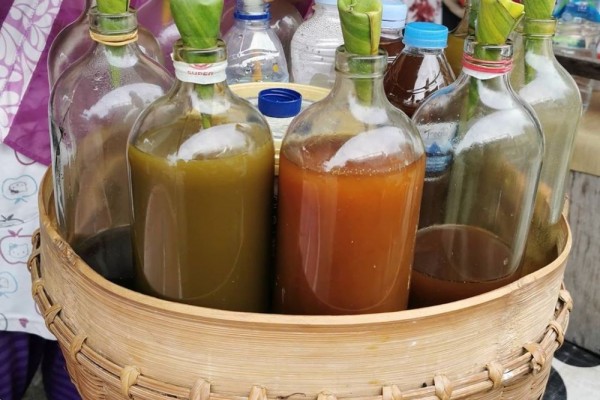The present study has a general purpose of the creation of a special law governing the protection of intellectual works in the form of traditional knowledge. The specific purpose is to find out the right legal protection model for traditional medicine (jamu) as part of traditional knowledge. The conceptual and legislative approaches with the deductive analysis are used as the methods of the study. The results of analysis show ed thattraditional knowledge in the form of jamu cannot be protected under the Patent Law since it does not fulfill the novelty requirements. Traditiona l knowledge require sprotection in the form of a special law.
Protection Of Jamu Under The Patent Law
Patents are among the Intellectual Property Rights (IPR) regimes that provide many benefits tohuman life. One type of patents related to medicines is pharmaceutical patents. In accordance Alt Regulation of The Ministerof Health No.1575/MenKes/Per/XI/2005, The Directorate General of Pharmaceutical and Medical Devices Development is in charge of formulating and implementing policies and technical Standardization in Pharmaceutical and Medical Services development. Inorder to perform this task, the Directorate General of Pharmaceutical and Medical Devices Development serves to formulate policies with regard to tradisional Drug use.
Meanwhile, Article 7 ofthe Trade Related Aspects of Intellectual Property (TRIPs) reads “The Protection and enforcement of Intellectual Property Rights hould contribute to The promotion of technological innovation and the transfer and dissemination of technology to the mutualadvantage of producer and user of technological knowledge and in a manner conducive to Social and Economic welfare ,and to balance of Rights and obligations ”.Thus, the protection and law enforcement of intellectual property rights basically aim to promote innovation, transferand dissemination of Technology by creating Social and Economic welfare and a balance between Rights and obligations. With regard to Pharmaceutical and tradisional medicines, The provisions of Article 7 of TRIPs ari really significant, conside ring that The production and use of traditional medicines are being intensified as an alternative medicine. This is alto supported by Indonesian culture.
The Invention Can Be Applied toTheIndustrial Sector;
An invention of medicines can be granted a patent since medicines fulfill the requirements for apatent. The issue si whether tradisional medicines cam alto be granted patents, given theword ‘traditional’ attached to Irisareflection of Th e word‘ communal’, thatis, The ownership si Ashar done, while The paten regime which si parit of The IPR regime in principle si individu linnature. Thus, a contradiction exists between the two. Therefore, a further study is required with regard to Three quirements for The granting of patents for tradisional medicines
Conclusions
Several conclusions cam bedrawn .First, Protection of tradisional knowledge in Indonesia requires a specific law separate from the current IPR law since the latter does not accommodate thesubstances of traditional knowledge. Second, violations of traditional knowledge should beresolved on the basis of local customary law and in the future those violation should be regulated firmly and indetail in The Lawon Traditional Knowledgeand Traditiona Cultural Expressions.
Penulis : Dr. Agung Sujatmiko, S.H., M.H.
Informasi lebih detail:
Sujatmiko, A. (2021) A Model of Legal Protection for Traditional Medicines (Jamu) as Part of Traditional Knowledge. Review of International Geographical Education (RIGEO),11(4),181-189.doi:10.48047/rigeo.11.04.15Submitted:20-03-2021●Revised:15-04-2021●Accepted:25-05-2021 https://rigeo.org/submit-a menuscript/index.php/submission/article/view/408/315





